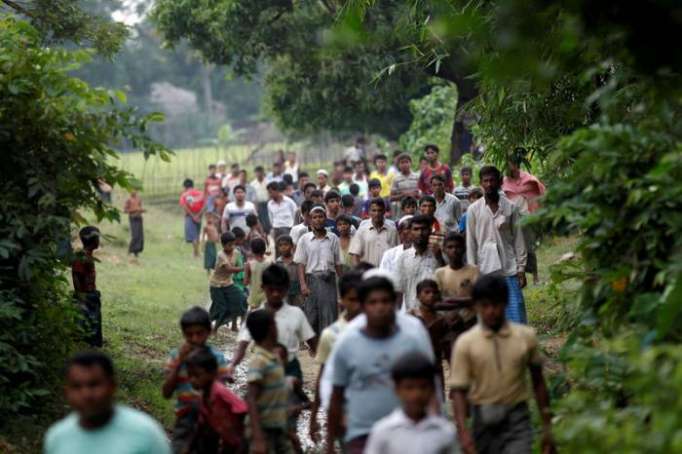The four teams -- from the UN Refugee Agency (UNHCR) and UN Development Program (UNDP) -- will spend two weeks in the northern state where thousands of Rohingyas were allegedly murdered and subjected to attacks, imprisonment and sexual violence at the hands of the Myanmar military.
Myanmar's military, known as the Tatmadaw, has repeatedly denied that it deliberately attacked unarmed Rohingya.
While the UNHCR has maintained an office and team in Rakhine State's Maungdaw town throughout the crisis, since August last year its access to field locations has been "severely restricted," spokesman Aoife McDonnell told CNN.
The Myanmar government gave UN teams permission to assess 23 individual villages and three other village wards at the weekend.
This is the first step in the process of repatriation after the UN in June signed a "Memorandum of Understanding" with Myanmar in which the government agreed "to create the conditions for safe, voluntary and sustainable return while fostering social cohesion," McDonnell said.
Last August, around 700,000 Rohingya started fleeing across the Myanmar border into Bangladesh, into what has since become one of the world's biggest refugee camps. Many of those who crossed the border have recounted horrific stories of being driven from their homes under threat of death.
An independent UN investigation last month into alleged human rights abuses carried out against the Rohingya called for the country's military leaders to be investigated and prosecuted for genocide, crimes against humanity and war crimes.
The damning report said military attacks were carried out under the guise of a crackdown on terrorists, and against a backdrop of impunity that effectively placed military leaders above the law.
Myanmar authorities insist they only target Rohingya militants, mostly from the Arakan Rohingya Salvation Army insurgent group, that are alleged to have launched deadly attacks on police posts.
Earlier this month a Myanmar court sentenced two Reuters journalists to seven years in prison for breaking the Official Secrets Act while investigating a massacre of Rohingyas.
Wa Lone, 32, and Kyaw Soe Oo, 28, were originally detained in December 2017 after working on an investigation for Reuters on the mass killing of a number of Rohingya villagers in Rakhine state.
The two men, both Myanmar nationals, pleaded not guilty, and the case has been viewed as a litmus test of press freedom and democratic rights in the Southeast Asian country.
The case also further increased criticism of Myanmar's de facto leader, Aung San Suu Kyi, who failed to condemn the ruling and has faced a loss in support for her handling of the Rohingya crisis.
CNN
More about: Rohingya
















































